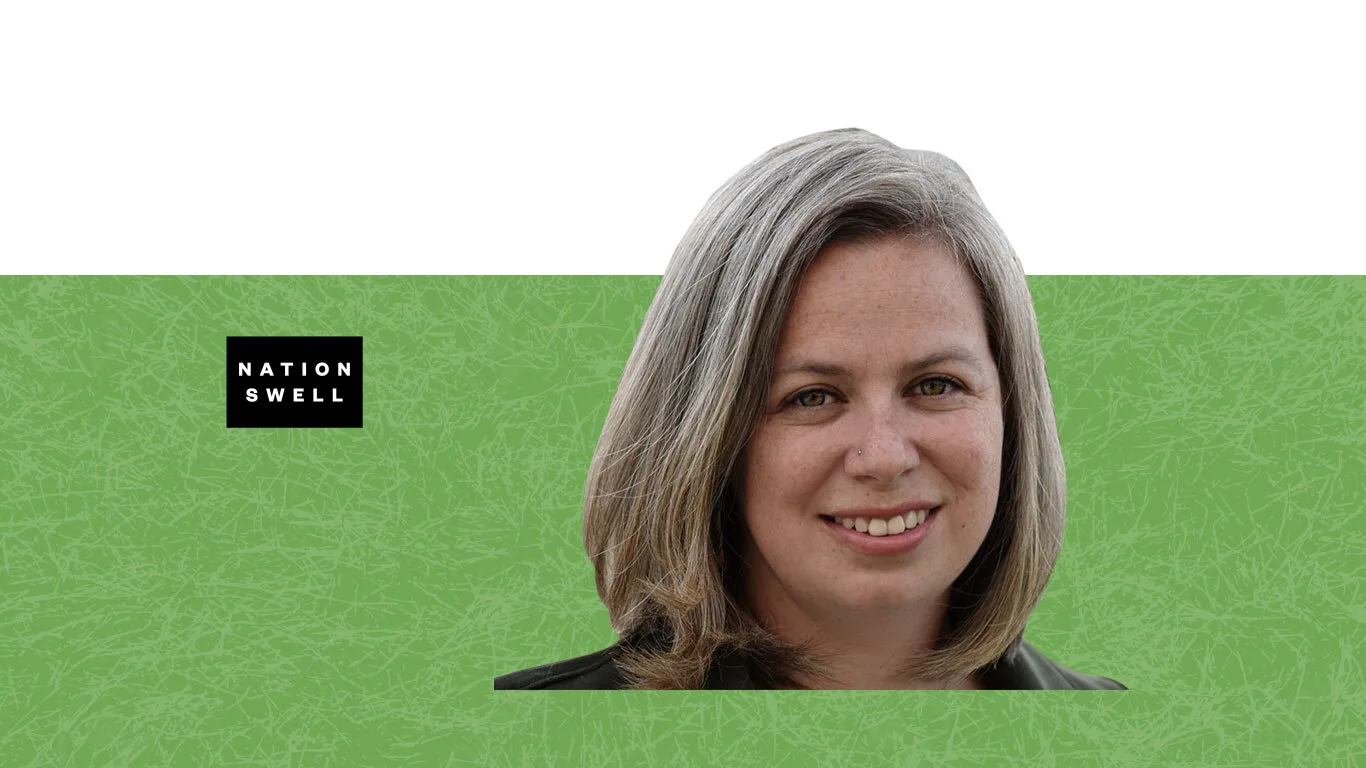Amid extreme and unprecedented worldwide pressures, global hunger and food insecurity remain at an all-time high. According to a United Nations report, up to 783 million people faced serious hunger in 2022, and 2.4 billion lacked access to adequate food to feed themselves or their families.
In celebration of World Food Day this week, NationSwell is profiling some of the social impact and sustainability leaders in its community whose standard-setting initiatives are advancing global food security in innovative, scalable, and measurable ways.
For this installment, NationSwell interviewed Meghann Glavin, director of Global Responsibility at Starbucks Coffee Company, on the programs she and her team are leading to address hunger in communities across the world. Here’s what she had to say.
Anthony Smith, Editor at Large, NationSwell: What are some of the initiatives you and your team are leading at Starbucks to help advance food security?
Meghann Glavin, director of Global Responsibility, Starbucks Coffee Company: In 2016, inspired by our partners who advocated for a program, we launched the Starbucks FoodShare donation program in partnership with Feeding America, Second Harvest Canada and other hunger-relief organizations. Since then, we have invested more than $60 million into hunger relief and donated the equivalent of 50 million meals.
We are especially proud that, for the majority of our stores, we rescue our own food – leveraging our broad logistics network to backhaul and consolidate food from thousands of stores every night. This takes unnecessary trucks off the road and removes the logistics burden from food banks and agencies who can then focus on serving communities and clients.
Smith, NationSwell: What impact have these initiatives — and others like them at Starbucks — had on hunger?
Glavin, Starbucks: I shared the scale of impact from FoodShare on our communities – and we are also proud that as part of our commitment to the planet, the more than 60 million pounds of food we have donated have also diverted more than 120 million pounds of CO2 equivalent from waste streams.
Beyond FoodShare, we are also proud of the work we have done with Feeding America through our Equitable Food Access Grants. Over the last 3 years, we have invested more than $5M into this innovative grant program, which has resulted in the distribution of 7 million pounds of food, serviced more than 1 million individuals, including 280,000 children, and engaged more than 3,000 neighbors and 400 community partner organizations.
And, I’m most inspired by the stories about the thousands of people who make this program happen every day – our partners who pack food daily and volunteer at hunger relief organizations regularly connecting with their communities, delivery truck drivers who make the program possible, and the creative chefs at food banks and agencies who are repurposing Starbucks food items to make amazing meals for their clients. Read more about the individuals directly engaged in the FoodShare program.
Smith, NationSwell: Why is this issue important to your organization, and why does this issue matter to you personally?
Glavin, Starbucks: According to Feeding America, more than 34 million people, including 9 million children, are food insecure in the United States alone, which means it is in every community we serve. From our first store in Pike Place Market – which works closely with the Pike Place Market Food Bank – we have always been about so much more than great coffee. Our mission is deeply rooted in community.
We believe it is our role and responsibility to help strengthen the communities we serve and give back more than we take from the planet. Our partners (employees) see hunger in their communities and their care and concern drives and sustains this work.
Smith, NationSwell Do you have a call to action to other sustainability or impact leads at other organizations large and small? Do you have a call to action to the general public?
Glavin, Starbucks: In addition to food insecurity, food waste is a major issue for climate change. According to WWF, we could reduce human caused greenhouse gas emissions by 6-8% if we stop wasting food. We have proven through this work that we can get food to those who need it and divert it from landfill, all inspired by our partners, our customers and communities. There are systems in place to make this possible, and we encourage others to join us and other leading companies.

 "
"